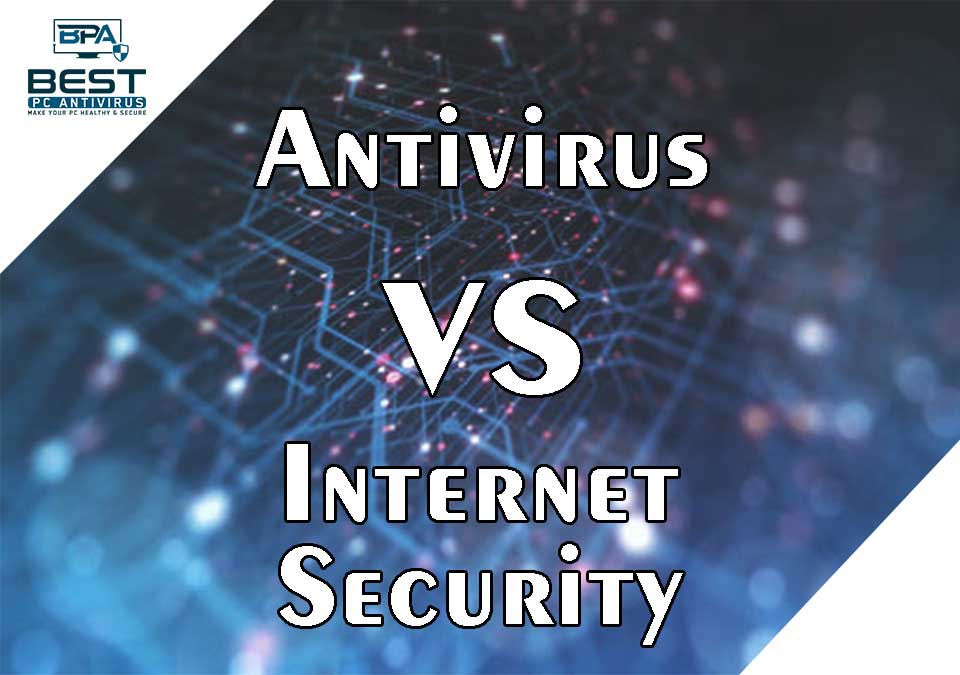The “Antivirus” and “Internet Security” are the software that protects the stoner from vicious programs by blocking and removing them. There are some parallels and distinctness between them. One of the major differences is that Antivirus protects the computer from contagions whereas, Internet Security protects from spyware, contagions, phishing, spam, and dispatch attachments.
Internet security is considered a marquee term for the division of computer security that handles the internet-grounded pitfalls. In discrepancy, the anti-virus is just a part of Internet security which is limited to its features.
Description of Antivirus
Antivirus software protects our computers from contagion, worms, and Trojan nags. Antivirus software monitors the geste of lines and checks whether it’s a vicious program or not. It can be considered a part of internet security.
Now, why the software like malware and contagions are dangerous? Because these contagions and malware can fluently steal the stoner’s sensitive information or use the stoner’s system for different purposes. Contagions and malware can potentially gain access to your system, make some variations and hide.
For illustration, e-mail, and a web runner visit could deliver any vicious train or document to the stoner, these websites are dodgy that doesn’t look suspicious.
The bus- update point present in the Antivirus software helps to cover the computer from the new contagions as soon as they’re discovered, as the anti-virus software providers explore arising pitfalls harmoniously. It searches the hard- fragment, and external media for contagion and removes it if set up.
still, it’s deleted or repaired, If the document turns to be vicious. AVG, Avast, Norton, and Kaspersky are some of the antivirus software that keeps our system safe.
Scareware
Scareware is software that pretends to be an anti-virus but is a contagion and spyware. A free or marketable anti-virus can be scareware so make sure before installing any anti-virus for free.
Description of Internet Security
Internet Security provides protection and sequestration against contagions, phishing, spyware, dispatch attachments, and spam. It deals with all the internet-grounded pitfalls and protects the system from cyber-attacks. It includes a firewall, antivirus, maternal control and dispatch protection to cover the system from online attacks.
At this point, we must know how the internet works. Let’s understand the working of the internet with the help of an illustration of a postal network. However, he can shoot a card to his friend and post it to the closest mailbox, if a person wants to communicate with his/ her friend.
Also, the card travels through an expansive network to reach the destination. Though, the card isn’t boxed by an envelope any mailman on the way can fluently read the communication or change the content without letting know the involved sender and receiver.
Analogously the internet works, similar to when a stoner visits a website, the communication is transmitted from the website to the stoner(vice-versa) and passes through other different biases. Information travels through the internet in an insecure manner. As a result, the druggies’ communication can fluently be overheard or tampered with on every device.
still, to fight this encryption is used, but translated data can also be deciphered. This is the reason we use “Internet Security”. It protects the data that’s transferred over the Internet, similar to credit card numbers, watchwords, online communication, fiscal details, photos, and bank account details.
Types of Encryption
There are two types of styles used for cracking data over the internet.
- End- to- End encryption – In this fashion, the communication is translated from the transferring point to the receiving point (i.e., cracking the whole way) so that only the receiver could read the communication.
- Partial encryption – This system encrypts the communication for a particular point after reaching that point the communication would be open for all.
Crucial Differences Between Antivirus and Internet Security
- An antivirus is a software that can descry and remove contagions or infected lines from the system while Internet Security is a suite that contains different operations aiming to cover druggies against pitfalls from the Internet.
- Antivirus protects the computer from contagions, whereas, the Internet Security suite protects the system from spyware, spam, phishing, computer worms, contagions, and other advanced malware.
- Internet Security is premium as compared to Antivirus Software.
- Antivirus provides the necessary protection, whereas, Internet Security protects against Internet pitfalls.
- Both advise the stoner about unsafe websites, but Internet Security blocks the URLs.
Conclusion
Both Antivirus and Internet Security are fast and protect vicious programs. likewise, Internet Security is more robust as it contains all the features of Antivirus as well as some fresh features to cover the system. It warns about the unsafe spots and blocks the URL too.
FAQ
Why is internet security needed?
Web security is important to keep hackers and cyber thieves from penetrating sensitive information. Without a visionary security strategy, businesses risk spreading and escalating malware and attacks on other websites, networks, and IT architectures.
Which antivirus is stylish for total security?
The 6 Stylish Antivirus Software of 2022
- Stylish Overall Bitdefender Antivirus Plus.
- Stylish for Windows Norton 360 With Life Lock.
- Stylish for Mac Webroot Secure Anywhere for Mac.
- Stylish for Multiple bias McAfee Antivirus Plus.
- Stylish Premium Option Trend Micro Antivirus Security.
- Stylish Malware Scanning Malwarebytes.
Read More :- The Importance of Data Management




